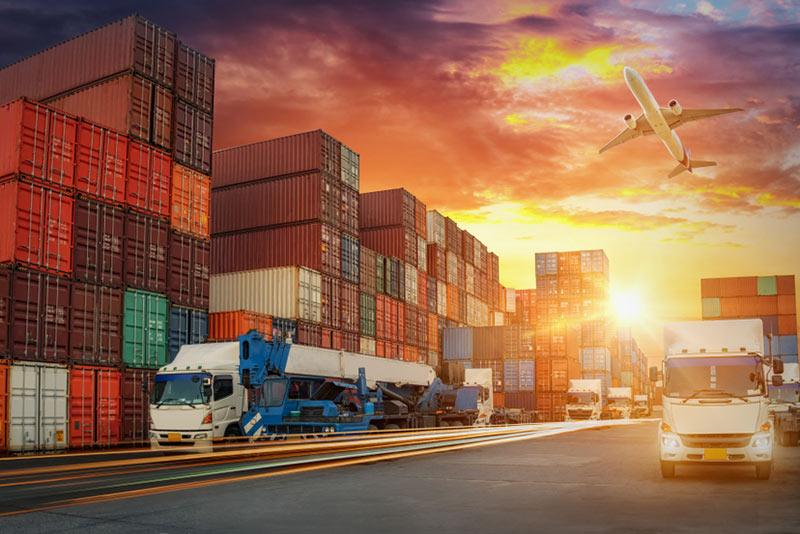Road Cargo to Saudi Arabia from Dubai: A Key Route for Gulf Trade
 0
0
Posted: Fri April 11 12:31 AM PDT
Member: AHL Logistics LLC
Tags: road freight
Trade and logistics form the backbone of economic development across the Gulf region, and among the most dynamic trade routes is the road cargo connection between Dubai and Saudi Arabia. As two of the most influential economies in the Middle East, the UAE and Saudi Arabia share a deep commercial relationship, facilitated significantly by overland freight services. Dubai, with its strategic location and world-class infrastructure, serves as a major export hub, while Saudi Arabia remains the largest economy in the Arab world, with growing demand for imports.

The Strategic Importance of Road Freight
Road cargo transport is a popular and practical choice for shipping goods from Dubai to various parts of Saudi Arabia. The close proximity, excellent highway infrastructure, and streamlined customs procedures between the two countries make land freight a fast, efficient, and cost-effective option.
The UAE and Saudi Arabia are connected by a robust road network, with the primary border crossing at Al Batha, which links the UAE with the eastern region of Saudi Arabia. From this point, goods can be transported to major cities including Riyadh, Dammam, Jeddah, Khobar, Mecca, and Medina.
Types of Cargo Moved by Road
The road freight industry from Dubai to Saudi Arabia handles a diverse range of cargo, reflecting the varied economic needs of Saudi consumers and industries. Commonly transported goods include:
-
Consumer electronics and appliances
-
Automotive parts and vehicles
-
Retail and fashion products
-
Industrial machinery and tools
-
Pharmaceuticals and medical equipment
-
Food and beverages
-
Construction materials and chemicals
-
Oil & gas industry supplies
Whether the cargo is temperature-sensitive, hazardous, oversized, or time-critical, specialized trucks and trailers are available to meet the specific requirements.
Major Destinations in Saudi Arabia
Road cargo from Dubai reaches all major Saudi cities through well-established transport corridors. Some of the most significant routes include:
-
Dubai to Riyadh: Capital city and a central hub for business and government.
-
Dubai to Jeddah: The primary gateway on the Red Sea coast with a bustling port.
-
Dubai to Dammam/Khobar: Key cities in the Eastern Province, close to Bahrain and home to industrial zones.
-
Dubai to Mecca and Medina: Religious and cultural centers that also require regular commercial supplies.
This broad reach ensures that road transport is the preferred method for many types of cargo, particularly when speed and direct delivery are important.
Advantages of Road Cargo from Dubai to Saudi Arabia
There are several compelling reasons why businesses continue to choose road transport for shipping goods between the UAE and KSA:
1. Cost Efficiency
Compared to air freight, road cargo is far more affordable, especially for bulky or heavy shipments. It allows businesses to save on freight costs while still ensuring timely deliveries.
2. Faster Transit Times
For short to medium distances, road freight is often quicker than sea freight, which includes longer handling and port clearance times. Deliveries to Riyadh or Dammam, for example, can be completed within 1–2 days.
3. Door-to-Door Convenience
Road cargo allows for direct pickup and delivery, reducing the need for intermediate handling or transfers. This increases security and minimizes the chances of damage or loss.
4. Customs and Clearance Support
Experienced logistics providers assist with documentation, permits, and customs clearance processes, ensuring smooth cross-border operations.
5. Flexible Shipping Options
From full truckload (FTL) to less-than-truckload (LTL), road freight offers flexible solutions for businesses of all sizes. This adaptability is crucial for companies with fluctuating shipping volumes.
The Role of Logistics Companies
Transporting goods from Dubai to Saudi Arabia involves several stages, and reliable logistics providers play a critical role in managing the process. Key services typically include:
-
Route planning and transit time optimization
-
Fleet management (flatbeds, box trucks, refrigerated trucks, etc.)
-
Real-time shipment tracking
-
Packing, loading, and cargo securing
-
Border clearance and regulatory compliance
-
Cargo insurance and risk management
By partnering with professional freight forwarders, businesses gain peace of mind, knowing that their shipments are handled efficiently and securely.
Customs Procedures and Documentation
Cross-border shipments must comply with customs regulations in both countries. The Gulf Cooperation Council (GCC) has worked toward harmonizing customs rules, making the process smoother over the years.
Essential documents typically include:
-
Commercial invoice
-
Packing list
-
Certificate of origin
-
Import/export declaration
-
Transport documents and permits
-
Driver and vehicle credentials
Ensuring that all paperwork is in order before dispatch helps avoid delays at border checkpoints like the Al Ghuwaifat (UAE side) and Al Batha (Saudi side) border crossing.
Technology and Innovations in Road Freight
The road freight industry is being transformed by technological advancements that improve service quality and transparency. Some of the innovations include:
-
GPS and Telematics: Real-time location updates and estimated time of arrival tracking.
-
Digital Freight Platforms: Online booking, pricing, and document handling.
-
Smart Customs Systems: Automated clearance to reduce waiting times at borders.
-
Eco-Friendly Trucks: Use of low-emission vehicles and alternative fuels for sustainable shipping.
These innovations not only enhance efficiency but also align with the region’s vision for smarter, greener logistics.
Conclusion
Road cargo from Dubai to Saudi Arabia is a vital component of the Gulf’s trade landscape, offering unmatched speed, flexibility, and affordability for businesses across various sectors. As infrastructure continues to improve and trade volumes grow, road transport will remain the preferred method for cross-border logistics between the UAE and KSA. By leveraging the right logistics partners and embracing modern freight solutions, companies can ensure that their goods move seamlessly from Dubai to any destination in Saudi Arabia.
Comments
Please login above to comment.
